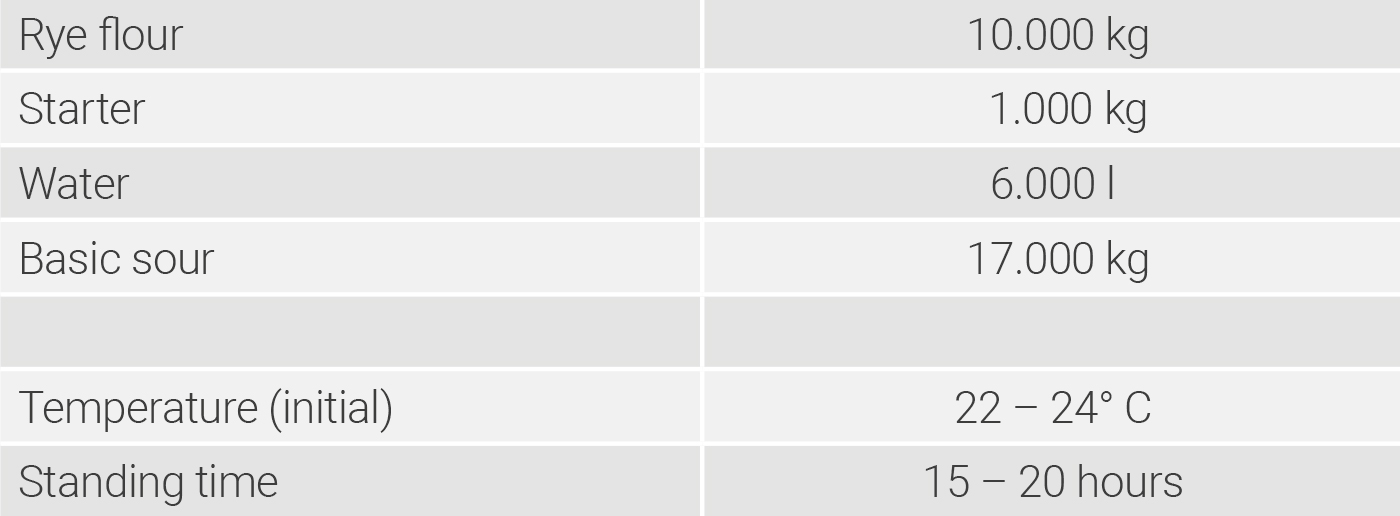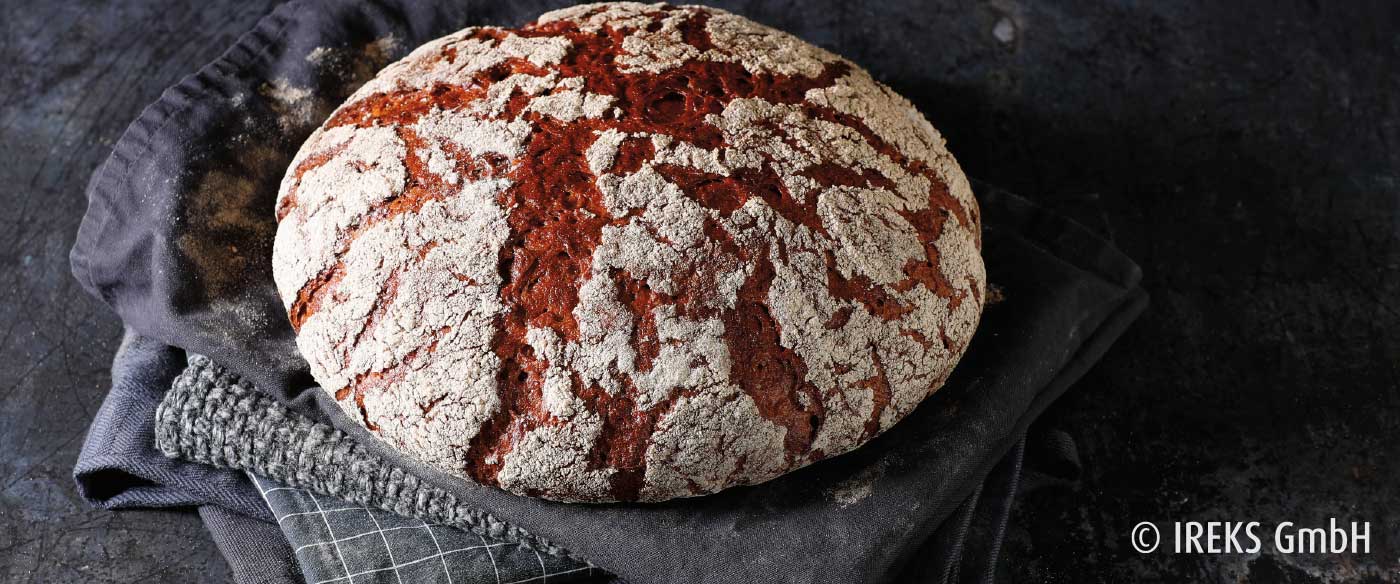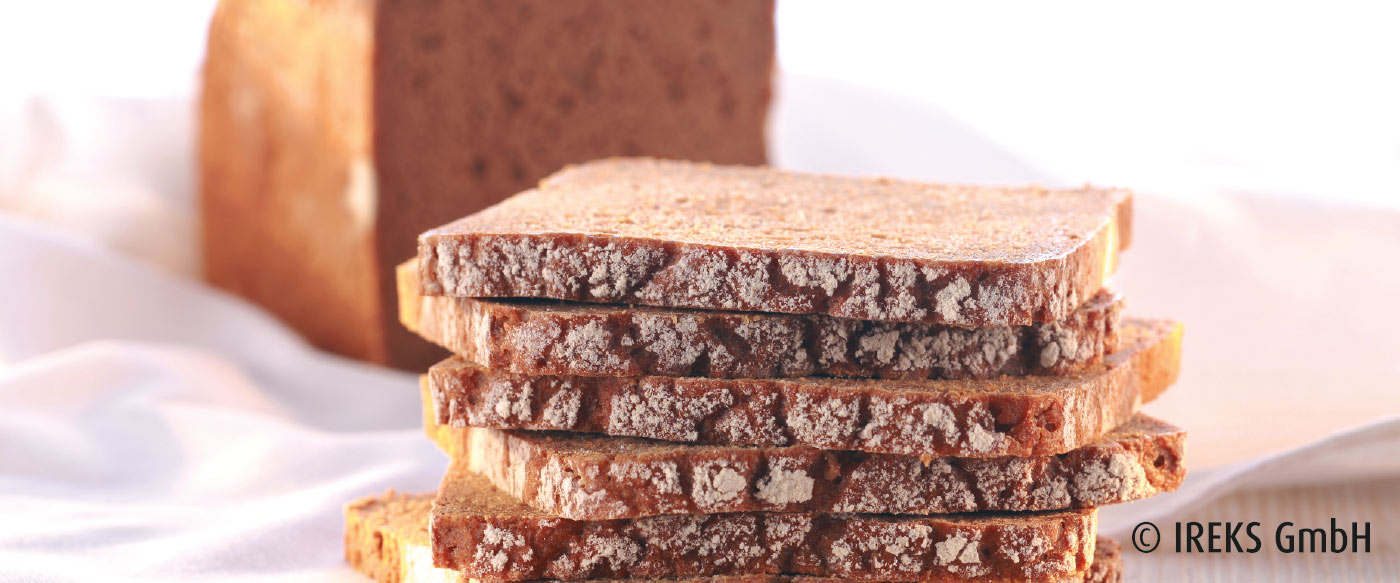The one-stage methods do without processing a refreshed sour for yeast reproduction. To still manufacture well-aerated baked goods despite this, the missing raising power is balanced by the addition of baking yeast.
In comparison to the multi-stage sourdough process, the one-stage methods represent a significant simplification of the work. Rye flour and water are only mixed once with a starter and, following the maturing time, the basic sour is ready for the dough preparation. One huge advantage of the basic sour method lies in the high processing tolerance and the low sensitivity to temperature.
One-stage basic sour method
One sourdough method, which is frequently used in practice and which has proven itself, is the one-stage basic sour method. It has a dough yield of 160 – 170 and a standing time of 15 – 20 hours. As a starter, a part of the mature basic sour from the previous day can be used. The sourdough processing should take place once a week with a pure culture sourdough or a new starter culture being used to guarantee a consistent taste of the bread.
The quantity of starter used depends on the temperature and the size of the sourdough batch. Should the temperature be kept in a warm range and should the sourdough batch be very large, then less starter is required. Is the sourdough batch very small or the temperature kept cool, then more starter is required. As a rule, processing is done with starter quantities of 5 – 10 % based on the flour quantity. The degree of acidity obtained is 16 – 18.
Due to the higher degree of acidity of the one-stage basic sour method, smaller amounts of sourdough are added to the bread dough than in the case of multi-stage methods with lower degrees of acidity.
Detmold one-stage method
This efficient sourdough method has replaced the multi-stage methods in many German bakeries. The maturing time of 15 – 24 hours makes it possible to work efficiently and to use this in various types of bread. The sourdough is processed with a dough yield of 180 and a starter quantity of 2 – 10 %.
For the quantity of addition of the starter, the average temperature of the sourdough during the process is decisive, the warmer the sourdough is processed, the less starter is required. Recommendations for quantities of starter for different sourdough temperatures are shown in table 8.11.
In the case of very warm ambient temperatures in combination with a flour quantity which is to be acidified which is above 50 %, quantities of starter of less than 2 % are recommended. The starter for the next day is taken from the mature sourdough and stored in the cold storage until further use. To produce high-quality sourdoughs day after day, air-conditioned rooms or sourdough installations, which can be adjusted in regard to temperature, are recommended. In the case of sourdough production via sourdough installations, dough yields of 200 – 220 are common.




